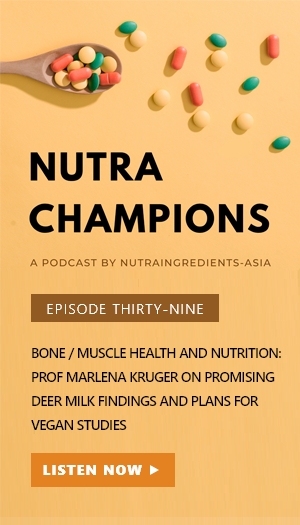New research linking ultra-processed food consumption with adverse health outcomes divides experts in Australia

Researchers conducted an umbrella review of existing meta-analyses and found that greater exposure to UPF was associated with a higher risk of adverse health outcomes.
UPFs, as defined using the Nova food classification system, includes a range of ready-to-eat products, including packaged snacks, carbonated soft drinks, and instant noodles.
“Greater exposure to ultra-processed food was associated with a higher risk of adverse health outcomes, especially cardiometabolic, common mental disorder, and mortality outcomes,” wrote the researchers in The BMJ.
Multiple meta-analyses have aimed to consolidate original epidemiological research investigating associations between UPF and adverse health outcomes. However, no comprehensive umbrella review has been conducted to provide a broad perspective and evaluate the meta-analytic evidence in this area.
Therefore, researchers wanted to evaluate the existing meta-analytic evidence of associations between exposure to UPFs (as defined by the Nova food classification system) and adverse health outcomes. They conducted the review based on the population, exposure, comparisons, outcomes, and study design (PECOS) reporting structure.
The lead author did a systematic search across MEDLINE, PsycINFO, Embase, and the Cochrane databases for studies spanning the period from 2009 to June 2023. The study included meta-analyses that focused on human populations across the life course regardless of their health status (population). Researchers examined associations between dietary intake of UPFs and adverse health outcomes (exposure).
They then studied the links between the intake of UPFs (comparison) and any adverse health outcomes (outcome). The included studies used observational epidemiological designs, which are types of research studies that observe and analyse patterns, causes, and effects of health and disease conditions in populations (study design).
The review included 45 distinct pooled analyses, encompassing a total population of 9,888,373 participants and spanning seven health parameters related to mortality, cancer, and mental, respiratory, cardiovascular, gastrointestinal, and metabolic health outcomes.
Across the pooled analyses, greater exposure to UPFs, whether measured as higher versus lower consumption, additional servings per day, or a 10% increment, was consistently associated with a higher risk of adverse health outcomes (71% of outcomes).
“This umbrella review reports a higher risk of adverse health outcomes associated with ultra-processed food exposure. The strongest available evidence pertained to direct associations between greater exposure to ultra-processed foods and higher risks of all-cause mortality, cardiovascular disease related mortality, common mental disorder outcomes, overweight and obesity, and type 2 diabetes,” wrote the researchers.
“Coupled with existing population-based strategies, we recommend urgent mechanistic research and the development and evaluation of comprehensive population based and public health strategies, including government led policy frameworks and dietary guidelines, aimed at targeting and reducing dietary exposure to ultra-processed foods for improved human health,” the researchers concluded.
Dr Daisy Coyle, Research Fellow and Accredited Practising Dietitian at The George Institute for Global Health, commented that these statistics highlight a “troubling reality”.
“Despite mounting evidence of their harmful effects, effective measures to curb our consumption of these products have been lacking. Existing nutrition policies in Australia aren’t enough to tackle this problem. It’s important that we start developing solutions that target the most harmful ultra-processed foods. We need to consider both policies that pull consumers away from ultra-processed foods, like advertising restrictions, warning labels and bans in schools as well as policies that support consumers toward healthier alternatives such as through subsidies for fresh, nutritious foods,” said Dr Coyle.
However, Dr Alan Barclay, a consultant dietitian, nutritionist, chef and an Honorary Associate at the University of Sydney, said more research was needed. He pointed out that experts in food and nutrition consider the NOVA system to be a simple and crude system for classifying foods into categories on the basis of their degree of processing and ingredients, in stark contrast to many existing food-classification systems based on the food’s nutrient content.
“Prospective cohort studies specifically designed and validated to use the NOVA system need to be conducted for rare conditions and when feasible and ethical, randomised controlled trials specifically designed to use the NOVA system need to be conducted. Until then, calls to incorporate the ultra-processed food concept into dietary and other public health guidelines are premature and may have unexpected social and health consequences,” he said.
Furthermore, while the researchers asserted that this umbrella review provides a comprehensive evaluation of the link between UPFs and adverse health outcomes, they acknowledged that there were inconsistencies or heterogeneity found across the original research articles.
“The consumption of ultra-processed foods is linked to a lower intake of unprocessed or minimally processed fruits, vegetables, legumes, and seafood. This raises the question of whether the associations between exposure to ultra-processed foods and poorer health are due to an overall unhealthy dietary pattern,” said the researchers.
They also acknowledged that evidence for the associations of UPF exposure with asthma, gastrointestinal health, some cancers, and intermediate cardiometabolic risk factors remains limited and warrants further investigation. Additionally, while certain subcategories of UPFs further showed higher risk, others were inversely associated, such as ultra-processed cereals, dark/wholegrain bread, packaged sweet and savoury snacks, fruit based products and yoghurt, and dairy based desserts.
“The authors rated the evidence as mostly very low to low quality. While these associations are interesting and warrant further high quality research, they do not and cannot provide evidence of causality,” said Dr Barclay.
Therefore, while the findings highlighted a consistent link between greater exposure to UPFs and increased risks of chronic diseases, this study has limitations and there are areas that warrant further investigation.
Clare Collins, Laureate Professor at the University of Newcastle, said: “The studies are observational, which means cause and effect cannot be proven and that the research evidence gets downgraded compared to intervention studies. The problem is that it is not ethical to do an intervention study lasting for many years where you feed people lots of UPF every day and wait for them to get sick and die.”
Collins commented that the UPF food industry should be the ones responsible for funding research that study the impact of UPF consumption on human health.
“Government resources should be directed to strategies that implement what we already know about the protective effects of consuming a healthy diet that is minimally processed and ensuring those who experience food insecurity are given every opportunity to be food secure and have dietary patterns that align with their county’s national food and nutrition recommendations," she said.
Source: The BMJ
DOI: http://dx.doi.org/10.1136/bmj‑2023‑077310
“Ultra-processed food exposure and adverse health outcomes: umbrella review of epidemiological meta-analyses”
Authors: Melissa M Lane, Elizabeth Gamage et al.
















